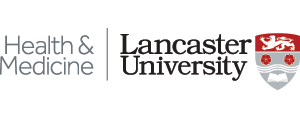Centre for Health Equity Research and Knowledge Exchange
About the Centre
CHERKe (Centre for Health Equity Research and Knowledge Exchange) aims to contribute to the reduction of health inequalities regionally, nationally and internationally by:
- Undertaking high quality research
- Participating in knowledge exchange to inform more effective action for health equity;
- Developing and delivering innovative education and training opportunities at post graduate and post qualifying level focusing on the social determinants of health.
Our research and knowledge exchange activities are structured around the following themes:
- Understanding pathways from the wider social determinants of health to health (in)equity including in particular, material disadvantage and social exclusion, the impact of chronic illness on employment, the relationship between place and health and the salience of lay knowledge about health and illness
- Evaluating complex area based interventions, public policies, and natural experiments that aim to reduce health inequities by addressing macro social determinants of health (in)equities
- Evaluating action to promote community/public empowerment and engagement in health related decision making
- Developing and evaluating methods for effective knowledge exchange with public health policy makers and practitioner including 'communities of practice' and 'new knowledge spaces'.
We undertake both basic and applied research and have specialist expertise in the systematic review of diverse evidences including qualitative research. Our current research includes collaborations with academics across the UK and in Germany, Sweden, Norway, Denmark, Spain, Brazil, South Africa, Canada and Australia. We are working with WHO EURO on action to address social exclusion, vulnerability and disadvantage in the EURO region and have major grants for applied public health research from the UK Department of Health, the Medical Research Council and the National Institute for Health Research.
Current Projects
Employment and Health
- Chronic illness and employment:
- This work builds on an international study, conducted by the Public Health Research Consortia and led by Professor Margaret Whitehead, that revealed lower employment rates for chronically ill people in the UK than in 4 other OECD countries. We are currently conducting a systematic review and qualitative study of the impact of musculoskeletal disorders on individuals' employment. Early results reveal that the ability to remain working with chronic illness pivots on the willingness of employers' to modify tasks, working hours and the physical workplace.
- Work and health:
- A mapping review of evaluative research focusing on interventions aimed at improving the link between work and health. Conducted for the Public Health Research Consortia with Margaret Whitehead and Mark Petticrew.
- The health impact of insecure employment:
- Collaborating on Australian research exploring the relationship between patterns of insecure employment and health. With Professor Fran Baum Flinders University. (Funder ANHMRC)
Evaluating area based interventions
- Evaluating New Deal for Communities and their approach to community engagement:
- This 10 year programme aimed to improve housing, educational and health outcomes and reduce unemployment and crime in England's most deprived areas. With colleagues in the Universities of Liverpool, Manchester, UCL and St Andrew's we are using secondary data sources to evaluate the impact on health inequalities.
(Funders: NIHR Policy Research Programme and Public Health Research Programme) - Making use of historical evidence to improve policy implementation:
- A synthesis of diverse evidence, secondary data analysis and new primary qualitative research to explore policy lessons and legacies to inform future policy implementation.
(Funder: Dept of Health Policy Research Programme)
Systematic Review and Evidence Synthesis
- ESRC funded guidance on the conduct of narrative synthesis. (Funder: ESRC Methods Programme)
- Cochrane SR of qualitative research on help seeking for diagnosis and treatment of TB. Highlighted barriers to help seeking (eg poverty, stigma and aspects of the social relationships of care) and the resourcefulness of people despite barriers.
- NICE review of evidence on the health impact of community engagement in health improvement interventions.
Exclusion, vulnerability & health inequalities: Research and evidence synthesis
- Coordination of a Global Social Exclusion Knowledge Network with hubs in Europe, South Africa, South East Asia, Colombia and Brazil reviewing evidence for the WHO Commission on Social Determinants of Health.
- Coordinating a multi-country task group reviewing evidence on exclusion, vulnerability and disadvantage for the WHO Marmot review of Social Determinants of Health in Europe.
Other Research and related activities
- An interactive map of public health research in the NW region.
- An evaluation of the use of the revised Smoke and Mirrors resource pack in schools, youth groups and FE colleges.
- Communities of practice in public health practice.
Contact Details
Centre for Health Equity Research and Knowledge Exchange (CHERKe)
-
Faculty of Health & Medicine
Division of Health Research
Bowland Tower East
Lancaster University
Lancaster
LA1 4YT
Tel: (0) 1524 593377
Current Projects
Key Contacts
- Director
- Professor Jennie Popay
- Other Staff
- Dr Michelle Collins
- Dr Emma Halliday
- Dr Paula Holland
- Professor Bruce Hollingsworth
- Dr Mark Limmer
- Administrative Support
- Libby Osborn
Problems with this page? Contact
the FHM Webmaster
© 2008-2014 Lancaster University - Disclaimer and Copyright notice -
Privacy and Cookies Notice
